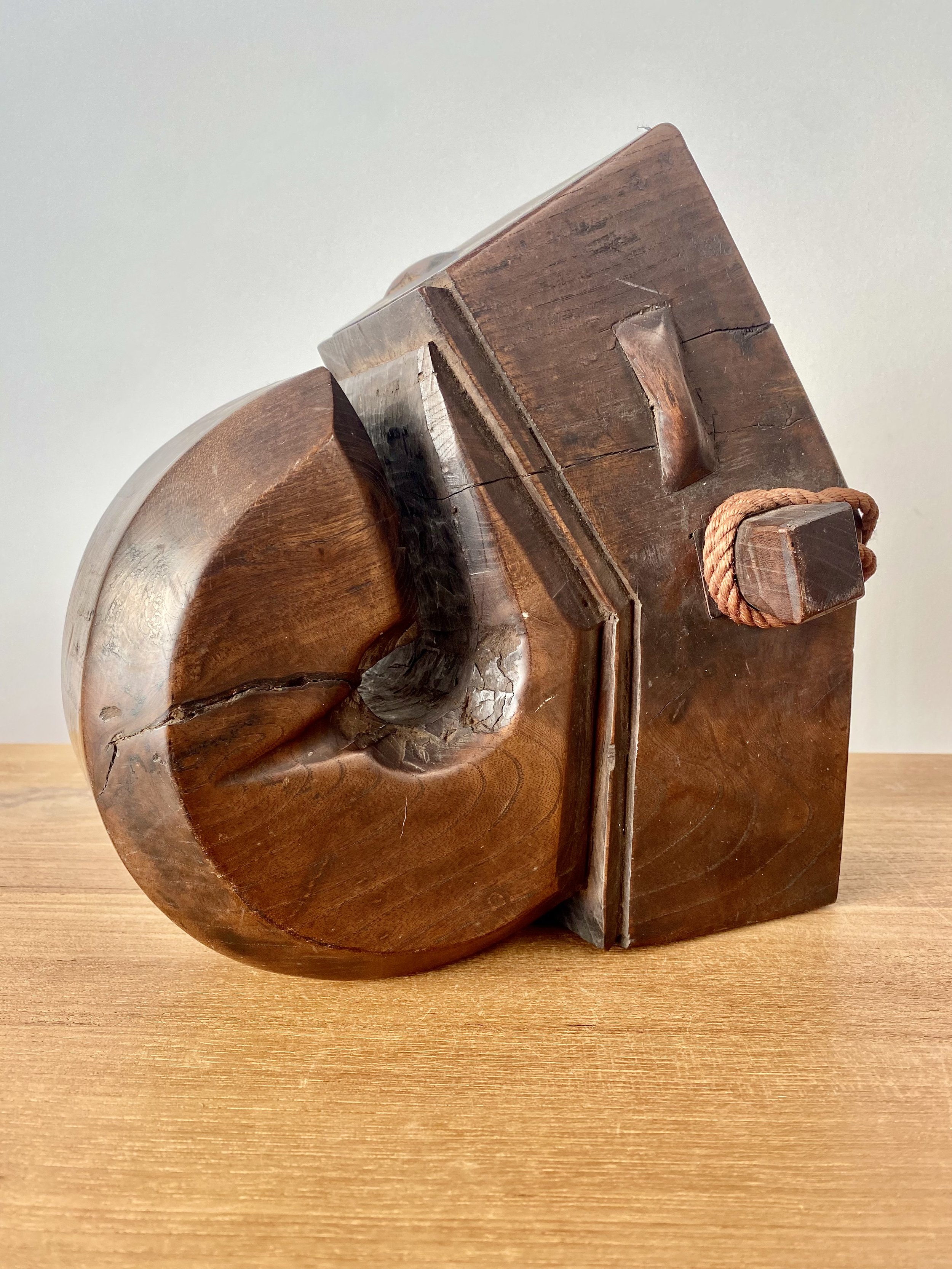 Image 1 of 7
Image 1 of 7

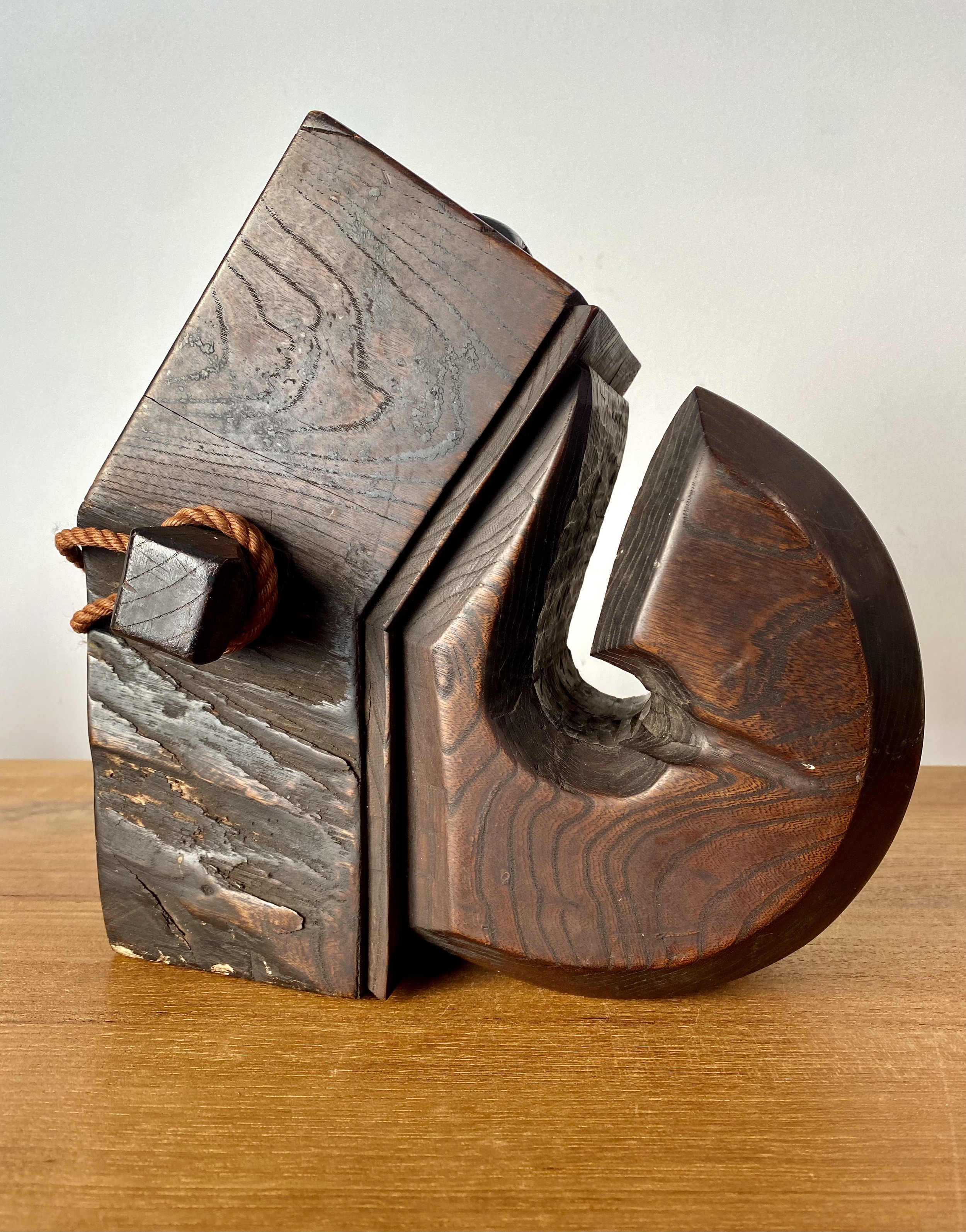 Image 2 of 7
Image 2 of 7

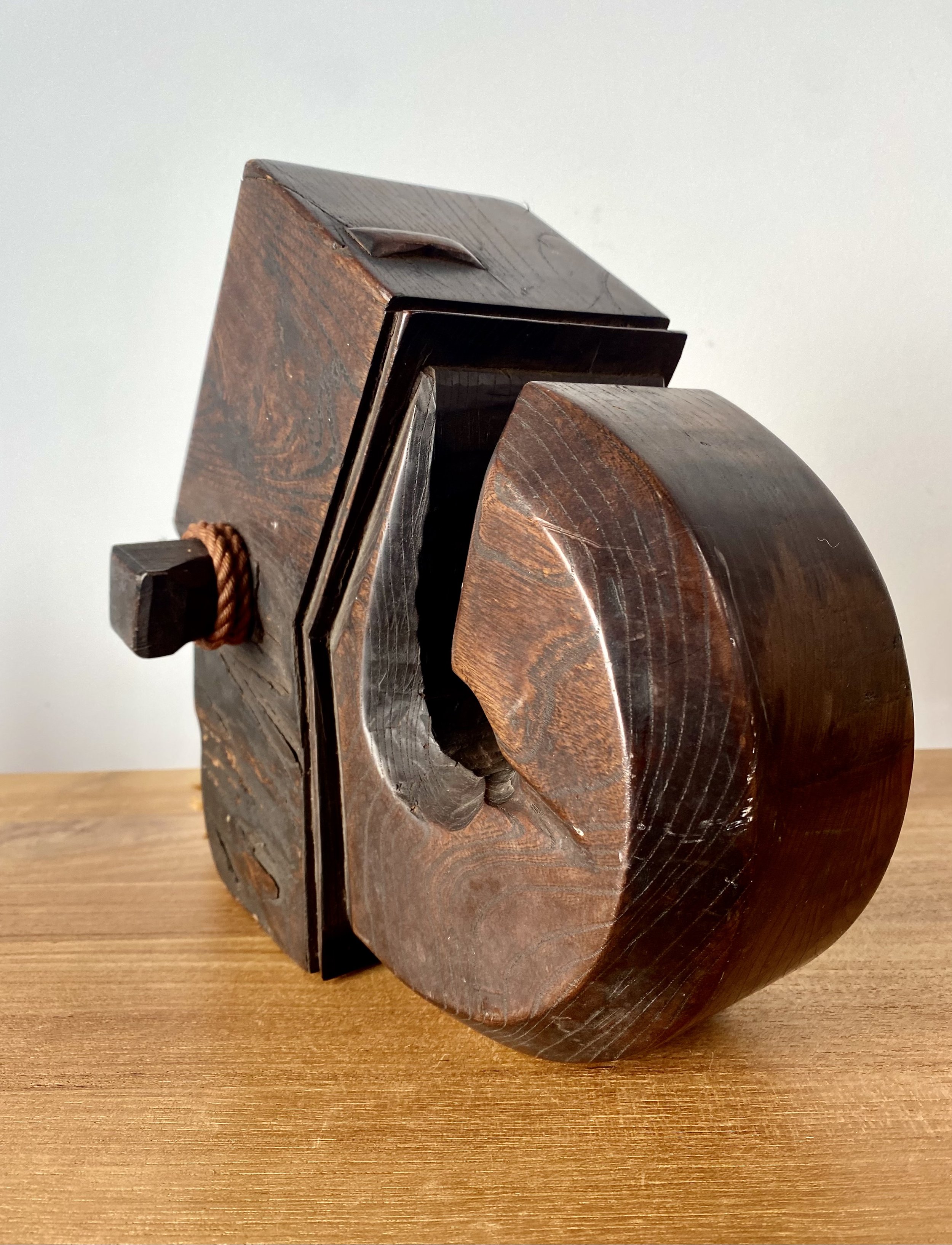 Image 3 of 7
Image 3 of 7

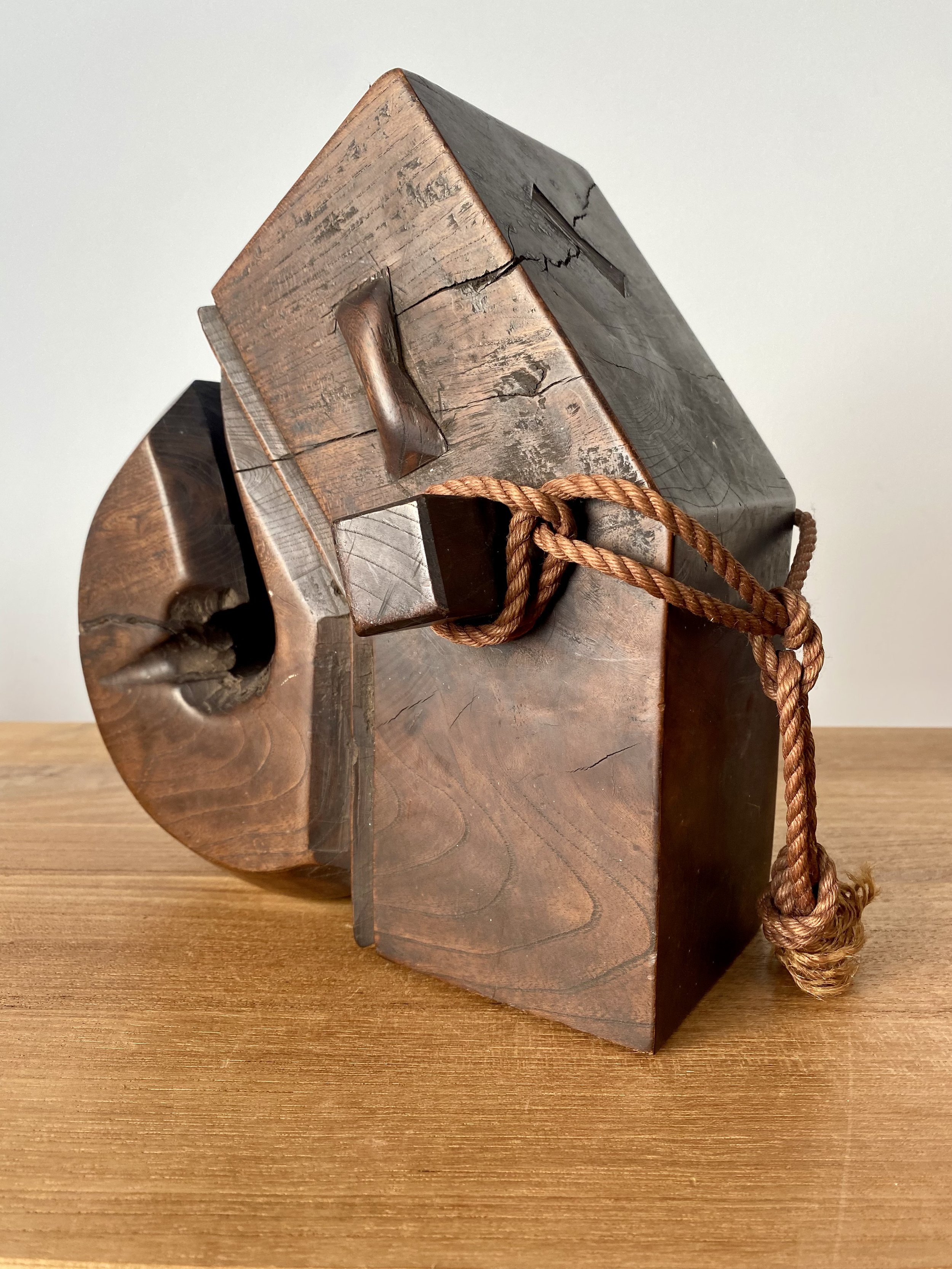 Image 4 of 7
Image 4 of 7

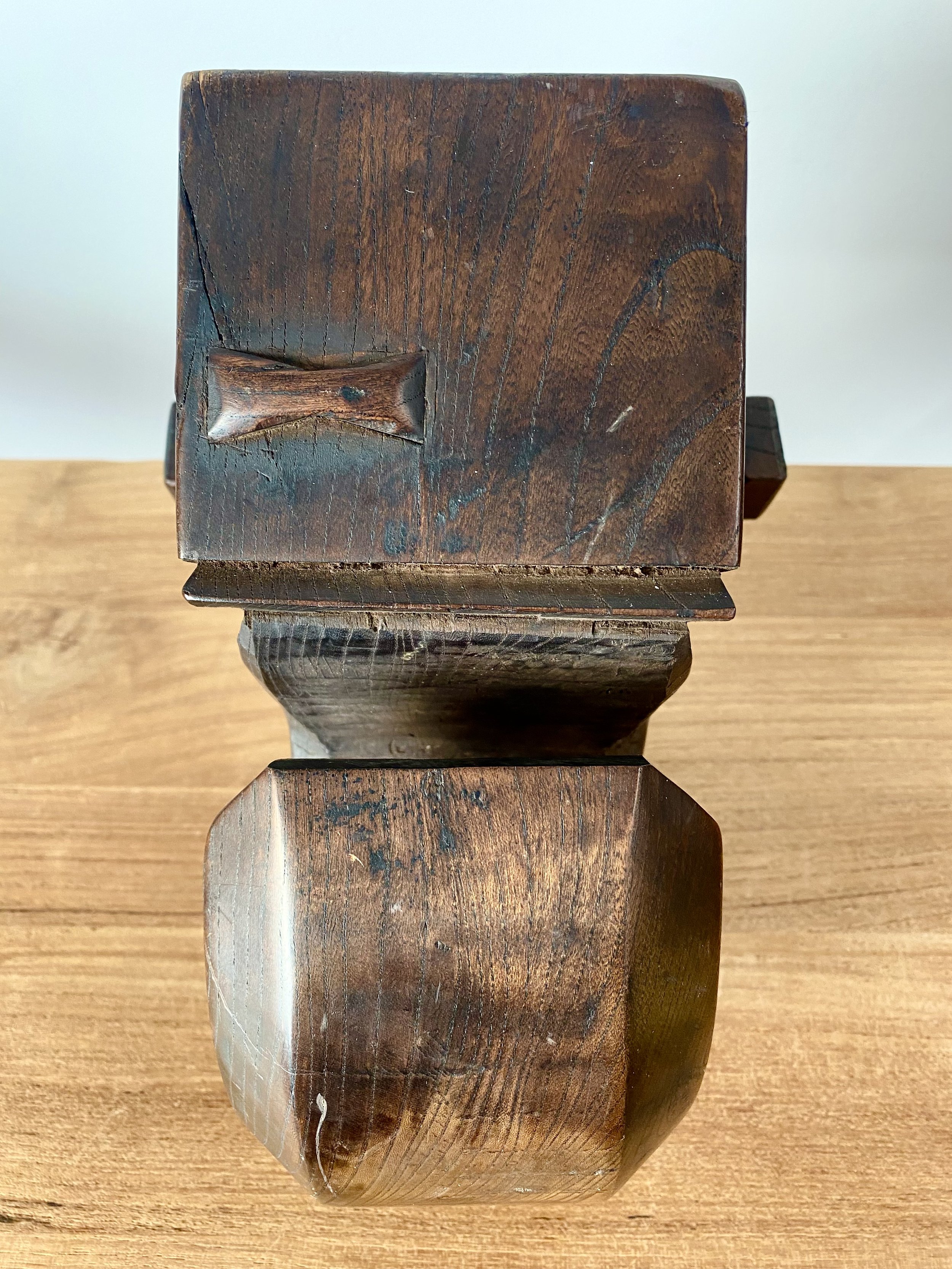 Image 5 of 7
Image 5 of 7

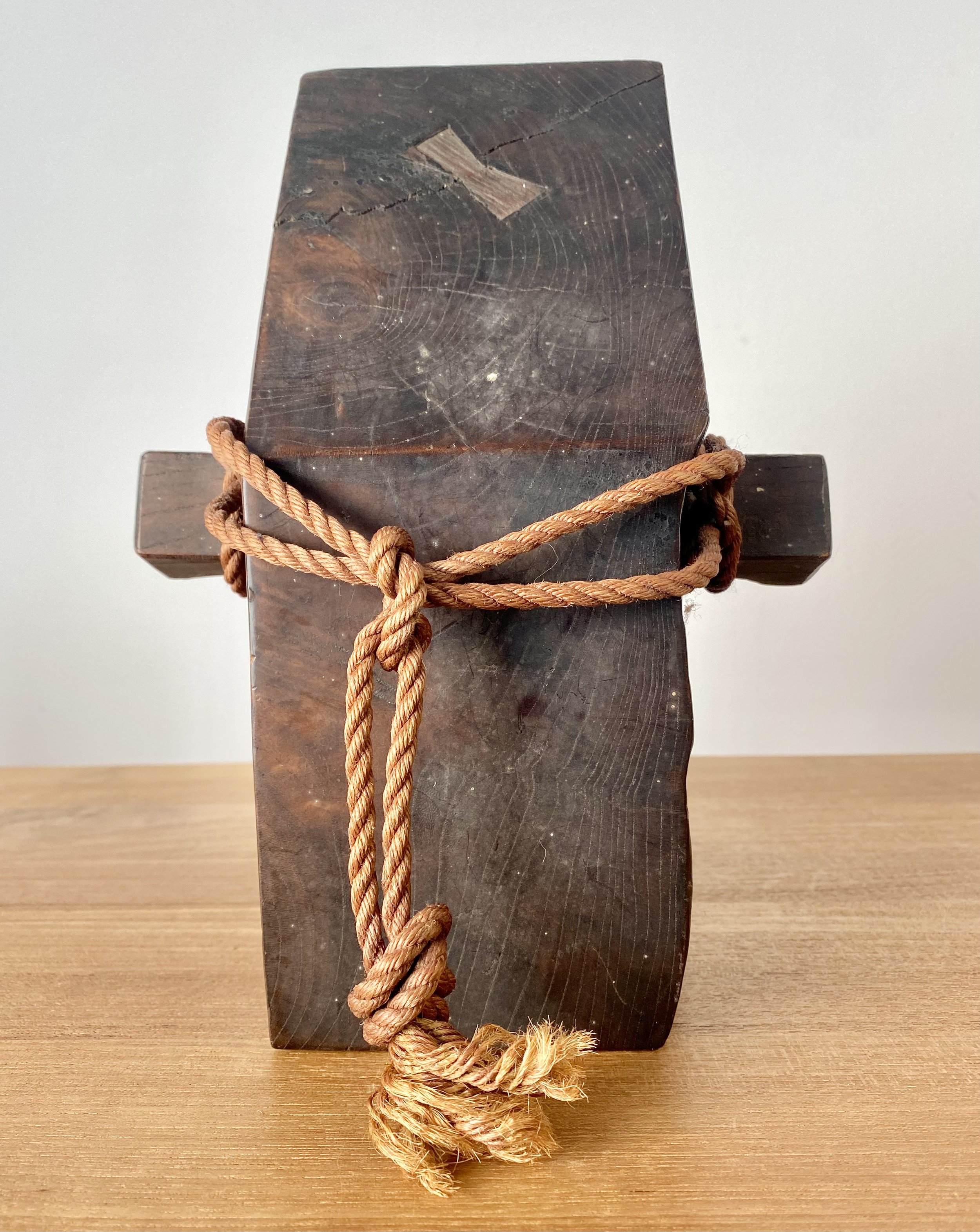 Image 6 of 7
Image 6 of 7

 Image 7 of 7
Image 7 of 7








Jizaikagi (Pot Hook)
A very nice jizaikagi (literally, “free hook”) that we recently found in Kyoto. A jizaikagi was suspended over the sunken hearth (irori) in a traditional Japanese home, and used to help raise and lower a heavy pot or tea kettle (tetsubin) over the fire, as needed. This style is sometimes called a Daikoku Jizai, after the popular Japanese god of wealth and fertility. Daikoku is always represented wearing a distinctive beret, which the angled top of this hook resembles. Daikoku is a syncretic mashup of the Shinto kami Ōkuninushi and the the Buddhist god Daikokuten (derived in turn from Shiva, and other Hindu antecedents).
Unusually, this jizaikagi has one unfinished “live edge”, and was stabilized with two butterfly joints— both features adding great character (wabi). Excellent patina, and rope marks consistent with use. We think jizaikagi are very satisfying forms, wonderfully simple, and almost modern in their sensibility.
Meiji Period (1868-1912). Made of Keyaki (Japanese Elm) wood. 10 1/4” tall x 8” inches wide (including pegs), eight pounds.
A very nice jizaikagi (literally, “free hook”) that we recently found in Kyoto. A jizaikagi was suspended over the sunken hearth (irori) in a traditional Japanese home, and used to help raise and lower a heavy pot or tea kettle (tetsubin) over the fire, as needed. This style is sometimes called a Daikoku Jizai, after the popular Japanese god of wealth and fertility. Daikoku is always represented wearing a distinctive beret, which the angled top of this hook resembles. Daikoku is a syncretic mashup of the Shinto kami Ōkuninushi and the the Buddhist god Daikokuten (derived in turn from Shiva, and other Hindu antecedents).
Unusually, this jizaikagi has one unfinished “live edge”, and was stabilized with two butterfly joints— both features adding great character (wabi). Excellent patina, and rope marks consistent with use. We think jizaikagi are very satisfying forms, wonderfully simple, and almost modern in their sensibility.
Meiji Period (1868-1912). Made of Keyaki (Japanese Elm) wood. 10 1/4” tall x 8” inches wide (including pegs), eight pounds.